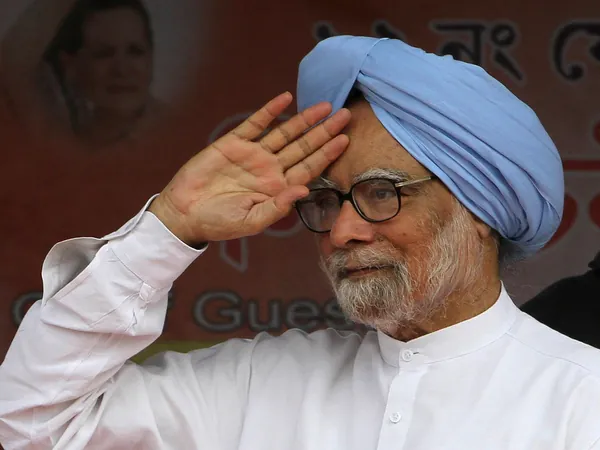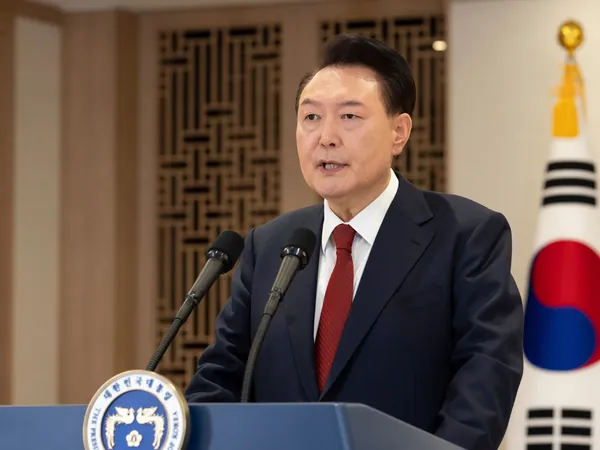
India Mourns the Loss of Former Prime Minister Manmohan Singh at 92
2024-12-26
Author: Ying
In a moment that has left an indelible mark on India, the nation is mourning the passing of Manmohan Singh, the former Prime Minister who played a pivotal role in transforming the country’s economy. Singh, who died at the age of 92, had been hospitalized at the All India Institute of Medical Sciences in New Delhi due to “age-related medical conditions” following a sudden loss of consciousness at home.
Singh, who served as Prime Minister from 2004 to 2014, was renowned not only for his tenure as a leader but also for his earlier position as finance minister during a critical juncture in India’s economic history in the early 1990s. He was credited with implementing reforms that opened India's economy, guiding the country through a dire balance of payments crisis and setting the foundation for future growth.
Born into a modest family in what is now Pakistan, Singh’s ascent from humble beginnings to the highest office in India is a story of resilience and intellect. After excelling academically—studying at Cambridge and Oxford—he became a prominent economist and eventually the Governor of the Reserve Bank of India. Despite his immense achievements, Singh was characterized by his modest demeanor and a commitment to public service.
Tributes have poured in from various leaders, with current Prime Minister Narendra Modi describing Singh as one of India’s “most distinguished leaders.” Modi highlighted Singh’s contributions to improving the lives of millions and underscored the significant impact his economic policies had on the progression of the nation.
During Singh's leadership, the Indian economy experienced unparalleled growth, providing benefits that included welfare programs targeted at the rural poor. A major milestone during his administration was the landmark civil nuclear deal with the United States in 2008, which marked a new era in Indo-American relations.
However, Singh's tenure was not without challenges. His government faced substantial political obstacles, and by 2012, it was reduced to a minority after losing a coalition partner. Ultimately, in the general elections of 2014, Singh's party, the Indian National Congress, faced a decisive defeat against Modi’s Bharatiya Janata Party, leading to Singh’s departure from public office.
In his final public remarks before leaving office, Singh expressed confidence in his legacy, stating, “I honestly believe that history will be kinder to me than the contemporary media or, for that matter, the opposition parties in parliament.”
As the world reflects on Singh's remarkable life and career, the impact of his policies and leadership will continue to shape India's future. The country has lost a leader whose influence helped steer it toward a new economic era, and his absence will be felt for years to come.



 Brasil (PT)
Brasil (PT)
 Canada (EN)
Canada (EN)
 Chile (ES)
Chile (ES)
 España (ES)
España (ES)
 France (FR)
France (FR)
 Hong Kong (EN)
Hong Kong (EN)
 Italia (IT)
Italia (IT)
 日本 (JA)
日本 (JA)
 Magyarország (HU)
Magyarország (HU)
 Norge (NO)
Norge (NO)
 Polska (PL)
Polska (PL)
 Schweiz (DE)
Schweiz (DE)
 Singapore (EN)
Singapore (EN)
 Sverige (SV)
Sverige (SV)
 Suomi (FI)
Suomi (FI)
 Türkiye (TR)
Türkiye (TR)